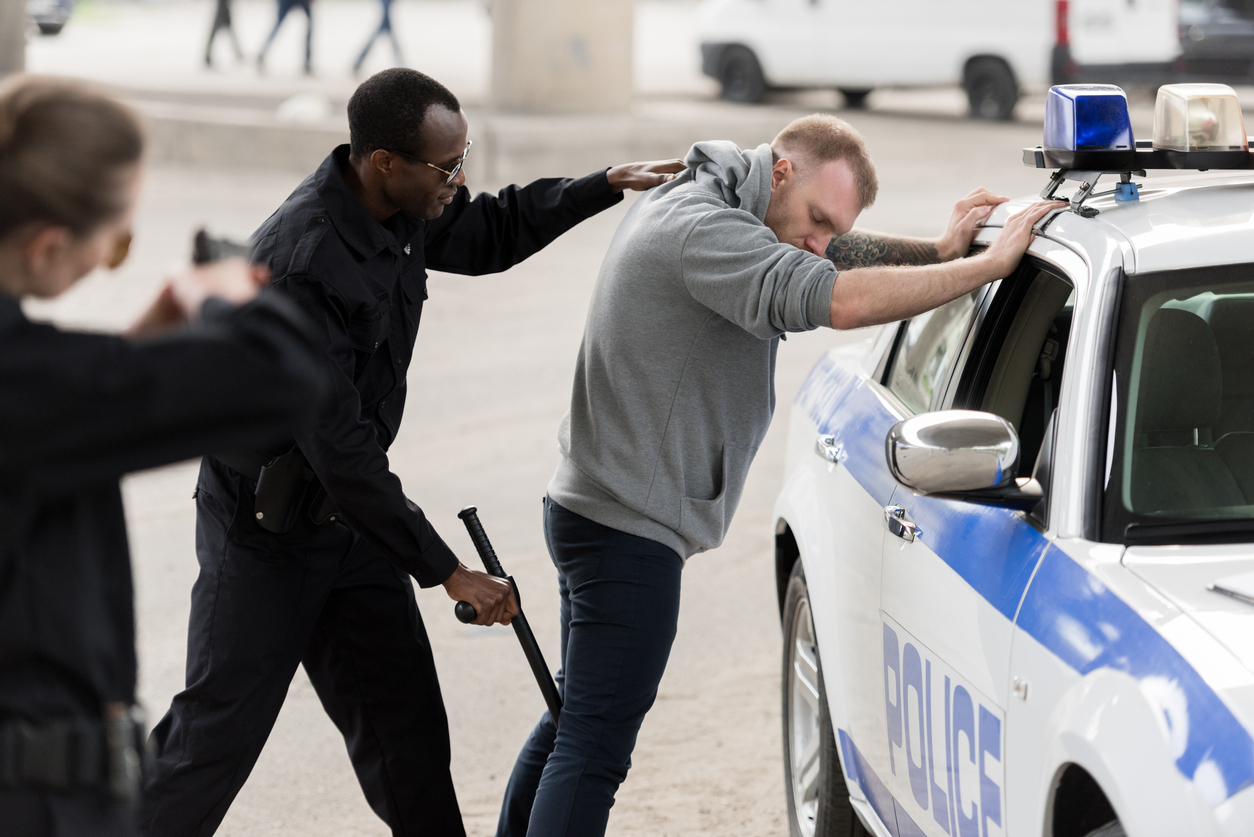ryan@ryanpeabodylaw.com | November 27, 2023

It’s paramount when interacting with police to fully understand your rights, particularly during stops and potential detentions. As a citizen in Montana, this can help you avoid misunderstandings and ensure you are treated fairly under the law.
Knowing whether you’re detained is of utmost importance for two reasons. First, it determines your right to leave. If you are not being detained, then typically you have the freedom to end the interaction and walk away.
Secondly, if you are ‘detained,’ additional constitutional protections come into play. This includes your Fifth Amendment right against self-incrimination or Sixth Amendment right to legal representation in certain circumstances.
This knowledge provides clarity regarding what rights apply during interactions with law enforcement officers. Here are six questions you should ask to determine if you are in fact being detained:
1. Am I Being Detained?
When a police officer first approaches you, it’s crucial to ask “Am I being detained?”. The reason for asking this question lies in defining the essence of the interaction.
Detention incorporates ‘brief and cursory’ questioning, usually ending with your release. Importantly, to detain a suspect legally, an officer must have reasonable suspicion regarding possible criminal activity – either it has been committed or is going to be committed.
2. Am I Being Arrested?
If you’re not currently being detained, your next question should aim to understand the context better: “Am I being arrested?” The distinction between detainment and arrest is crucial. Each implies differing degrees of restrictions on your freedom and varied legal protections.
To be arrested, law enforcement must have ‘probable cause’ or a warrant justifying your arrest.
3. Am I Free to Leave?
In instances where it remains unclear whether you’re being detained, consider asking directly, “Am I free to leave?” During a voluntary interaction with law enforcement where you’re supposedly not being detained, you should be free to leave at any time.
By demanding clarity on your ability to leave, it helps establish whether such interactions are truly voluntary. If an officer says you aren’t being detained but then tells you that you cannot leave, you’ll know that you are in fact being detained, regardless of how law enforcement wishes to qualify the interaction.
4. May I Speak to My Lawyer?
The value of requesting and hiring legal representation can never be overstated when interacting with police. Regardless of how routine the encounter may seem, or how innocent you are (or believe yourself to be), legal representation is imperative in these situations.
Asking to speak to your lawyer ensures you’re protected by a professional who understands the law and your rights. Additionally, what if you are being detained and the police continue to question you even after you’ve asked for a lawyer? Any statements or evidence recovered as a result of these statements should be able to be suppressed if you are arrested and brought to trial.
5. On What Grounds Are You Detaining Me?
After confirming that you are being detained, this question may prompt the officer to articulate his reasonable suspicion or probable cause.
This may provide you with some understanding of what’s going on so you can take the appropriate steps going forward. For example, the police officer may let you know that you’re being investigated for a drug crime or that you fit the description of a robbery suspect. The more you know, the better.
6. Do You Have a Warrant?
Sometimes, the police may want to search you or your property during a detainment. However, without your explicit consent or certain exceptional scenarios, police usually must possess a warrant for searching your property and person. You have protections under the Fourth Amendment.
Declining searches without necessary warrants is perfectly within your constitutional rights. Make sure to ask if they have a warrant, and if they don’t, do not provide consent to search without first speaking with an attorney.
Always Contact a Criminal Defense Lawyers For Help
Understanding your rights and being able to assert them effectively during police interactions is integral. You have numerous protections under the law designed to protect your privacy and prevent arbitrary detention.
In all situations, remember that contacting a skilled criminal defense attorney as soon as possible can make a significant difference in the outcome.
For more information, please contact one of our experienced Criminal Defense Lawyers at Law Office of Ryan Peabody to schedule a free initial consultation today. to schedule a free case review today.
Law Office of Ryan Peabody
121 Wisconsin Ave., Suite 201
Whitefish, MT 59937
(406) 609-0708

